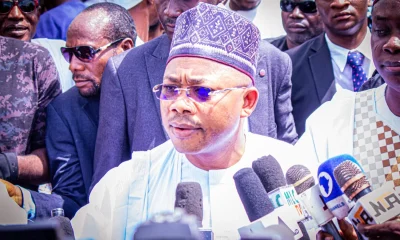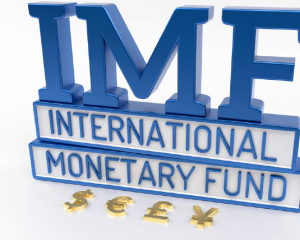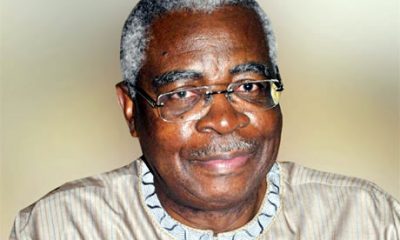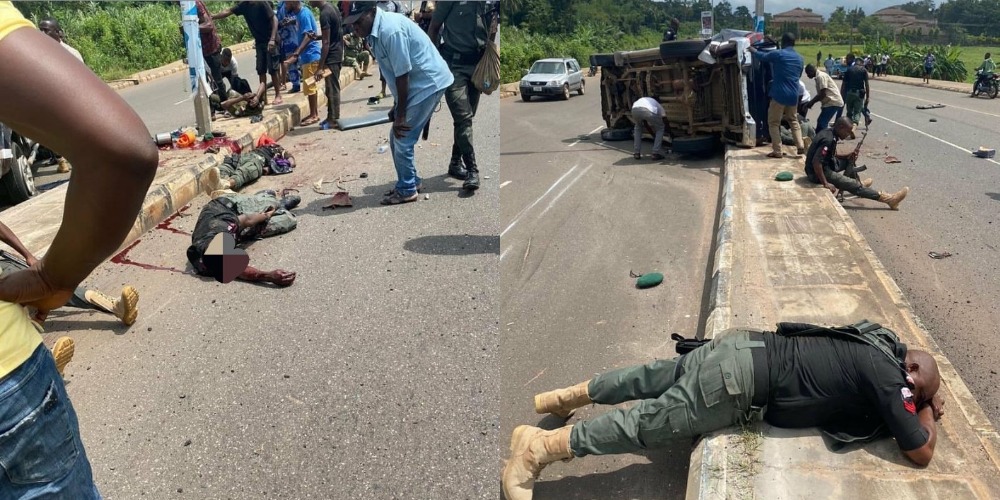FEATURES
Issues in Africa’s Rising Debt

Debt is part of human life and existence. Debt is also as old as man and so are defaulters.
Most of the time, debt is not a major problem, but sometimes it can become catastrophic.
According to the International Monetary Fund (IMF) database, there is only one country in the world that is debt-free.
That country is Macau Special Administrative Region (SAR) of greater China.Seven of the world’s big economies rank among the 20 countries with the highest external debts.
These are: United States (28.9 trillion dollars), Russia (280.1 billion dollars), United Kingdom (2 trillion pounds), France (3 trillion dollars), Germany (5.9 trillion euros), Japan (12.2 trillion dollars) and China (7 trillion dollars).African countries are not left out. Many of them are collecting loans from the World Bank, the IMF, China and other countries of the world to fund various development projects, but the trend has become a source of great concern among analysts.
The concern among the analysts is borne out of the increasing indebtedness of many countries in the continent.
They are quick to raise questions about the implications of this huge debt on the lives of Africans and future generations.
According to the Economic Times, Africa’s debt to China exceeded 140 billion dollars as at September 2021.
Meanwhile, the IMF estimates that additional financing of up to 285 billion dollars would be needed from 2021 to 2025 by African countries to step up their spending response to the coronavirus pandemic.
Foreign affairs experts say that while China’s role in global trade is highly publicised and politically polarising, its growing influence in international finance has remained more obscure, mostly due to lack of data.
Over the past two decades, China has become a major global lender, with outstanding claims now exceeding more than five per cent of global Gross Domestic Product (GDP).
According to the analysts, research, based on a comprehensive new data set, shows that China has extended more loans to developing countries than previously known.
This systematic underreporting of Chinese loans has created a “hidden debt” problem – meaning that debtor countries and international institutions alike do not have a complete picture of how much countries around the world owe to China and under which conditions.
In total, the Chinese state and its subsidiaries have lent about 1.5 trillion dollars in direct loans and trade credits to more than 150 countries around the world.
This has turned China into the world’s largest official creditor – surpassing traditional, official lenders such as the World Bank, the International Monetary Fund (IMF), or all creditor governments of the Organisation for Economic Cooperation and Development (OECD) combined.
According to the IMF, more than 20 low-income African countries are in debt distress or at risk of debt distress between September and December 2021.
The fund identified Mozambique, Somalia, Sudan and Zimbabwe as some of the countries that have had long track records of development distress and have had to continue to borrow and invest.
The debt of low- and middle-income countries in sub-Saharan Africa increased to a record 702 billion dollars in 2020, according to a new World Bank report released on Oct. 11, 2021.
This is the region’s highest debt in a decade.
In 2010, sub-Saharan Africa’s debt stood at around 305 billion dollars.
According to informed sources, since 2010, Chinese financial institutions have funded an average of 70 projects every year in Africa with an average value of 180 million dollars.
The resource guarantee infrastructure financing has been focused on minerals and hydrocarbon-rich African states including Zambia (copper), Kenya, Nigeria, Ghana, Angola, Algeria, Mozambique, Egypt, Sudan (oil & gas), South Africa and Tanzania (gold).
China currently is a leading bilateral lender in 32 African countries and the top lender to the continent as a whole.
In 2020, the African countries with the largest Chinese debt were Angola (25 billion dollars), Ethiopia (13.5 billion dollars), Zambia (7.4 billion dollars), the Republic of the Congo (7.3 billion dollars) and Sudan (6.4 billion dollars).
As at 2021, the total external public debt in West Africa amounted to around 164 billion U.S. dollars.
Nigeria and Ghana recorded the highest levels of debt in the region, at approximately 79.54 billion dollars and 21.91 billion dollars, respectively.
But the debts have been triggering repayment crisis. China owns around 72 per cent of Kenya’s external debt which stands at 50 billion dollars.
Over the next few years, Kenya is expected to pay 60 billion dollars to the China Exim Bank alone, sources informed.
Mombasa port could be lost if Kenya defaults on the loan re-payment, according to Kenya’s own auditor general.
The National Treasury Cabinet Secretary Ukur Yatani, denied that Kenya had offered the strategic national asset as collateral for the 3.2-billion-dollar loan sourced from the Export Import Bank of China (Exim China) to finance its Standard Gauge Railway (SGR) project.
Although he maintained that the government was servicing the SGR loans, concerns are mounting that runaway public debt could see Kenya default on its loan obligations, a risk that could expose the port to seizure by China.
In a report to parliament, the auditor general said that the assets of Kenya Ports Authority (KPA) and Kenya Railways Corporation (KRC) were used as collateral for the SGR loans.
In 2015, it was reported that there was widespread discontent in Angola because of oil repayment loans from China, leaving Angola with little crude oil to export.
The Ugandan government also had to postpone the construction of ‘Kampala-Entebee expressway after the political opposition raised concerns over the country’s rising debt profile.
In Djibouti, China has provided nearly 1.4 billion dollars which is 75 per cent of the country’s GDP, according to reports.
Between 2010 and 2015, Nigeria’s debt to China grew by 136 per cent from 1.4 billion to 3.3 billion dollars and the country had to spend 195 million dollars in 2020 as debt repayment to China.
Meanwhile, Credit rating agency, Agusto&Co, in its Economic Newsletter January 2022 edition said that Nigeria’s foreign debt could rise from about N15 trillion to N18 trillion if the Central Bank of Nigeria (CBN) devalued the naira at about 20 per cent.
The firm added that Nigeria has assumed a hawkish foreign exchange policy stance since 2015 and this has been elevated from 2020 to date.
“We project foreign debt could rise from about N15 trillion to N18 trillion if the CBN devalues at about 20 per cent.
“However, we note that the Federal Government’s borrowing stance creates a disincentive to review this hawkish foreign exchange policy stance,’’ the firm said.
Today in Nigeria, Socio-Economic Rights and Accountability Project (SERAP), a civil society organisation is demanding probe into the lending practices in the country and calling for a review of ‘sovereign guarantee clause’ in loan agreements with China.
Again, Nigeria has to repay 400 million dollars on a loan provided by China for the ‘Nigerian National Information and Communications Technology Infrastructure Phase – II Project,’ signed in 2018.
Former Chairman of the Senate Committee on Foreign and Local Loans, Sen. Shehu Sani said loans were indispensable in the 21st century economic development but “we should only borrow when it is necessary.
“It is impossible to say you want to develop your country without borrowing, but as a developing country, there is a need to prioritise borrowing.
“It was just a decade and a half ago that Obasanjo’s administration worked hard and gracefully freed Nigeria from the burden of debt and today, we have moved from zero debt to where we are today.
“Economic experts will always argue that we are within the threshold of a safety net, whereby we can still borrow, because we can pay.
“But if you continue to borrow there will be a time when you will not be able to pay.
“This is what is happening to Argentina; this is what is happening to Lebanon. We should borrow only when it is absolutely necessary.
“You want to borrow to build an airport, when you know very well that you can devise a mechanism, where the private sector can build an airport and you concession it to them and collect royalties from them later?
“You want to borrow to build a dam. But have you explored the possibility of foreign or local investors building a dam for electricity or for agricultural purposes and you go in to enter into a partnership with them?
“That is the question, we have what is called debt management Act, where conditions for borrowing are clearly stipulated.
“Before you borrow, we first want to know how much do you want to borrow. What you want to use the loan for, and what are your debt servicing plans?
“If you are heavily indebted and if you still want to borrow, you are strangulating the economy, the state, or the country?,’’ Shehu said.
He added: “Of less concern is the borrowing from China, it is easier to borrow from China than to borrow from the rest because when China lends you money, they will simply be expecting you to pay back.
“But when western institutions are to lend you money, they have to check your finances, financial discipline, stability of your government, impact of the project you are borrowing \for on the community.
“Sometimes they look into your human rights record. But ask yourself, how long will it take to service such loans and at what costs? Lebanon today is strangulated because of a 100-million-dollar loan it took.
Meanwhile, DMO’s Director-General, Mrs Patience Oniha has faulted the IMF report and a similar one by foremost Pan-African Credit Rating Agency, Agusto & Co.
She said that both reports failed to consider the challenges experienced by Nigeria in recent times.
“There were challenges such as two recessions, sharp drop in revenues and security challenges.
“Even more, the analyses do not acknowledge the improvements in infrastructure which have been achieved through borrowing, as well as, the strong measures by the government to boost revenues,” she said.
She reiterated the fact that the Federal Government was already implementing policies towards increasing revenues and developing infrastructure through Public Private Partnership arrangements, both of which will improve debt sustainability.
She noted that the Federal Government had active and regular engagements with the IMF on borrowing and debt management.
The DMO explained that the country’s total debt of 92.9 billion dollars, and a debt to Gross Domestic Product (GDP) ratio of 35.51 per cent were within sustainable limits.
The DMO clarified that Nigeria’s loans from China stood at 3.59 billion dollars (or 9.4 per cent) of the country’s total foreign debt stock.
It also clarified that the loans were largely concessional, as no national asset was tagged as collateral.
She explained that before foreign loans were contracted, very sensitive steps were taken by multiple institutions of government to ensure that they were beneficial to the nation.
“Before any foreign loan is contracted, including the issuance of Eurobond, they are approved by the Federal Executive Council and thereafter, the National Assembly.
“An important and extremely critical step is that the loan agreements are approved by the Federal Ministry of Justice.
“An opinion is issued by the Attorney-General of the Federation and Minister of Justice before the agreements are signed.
“Several measures which operate seamlessly have been put in place to ensure that data on debt are available and that debt is serviced as at when due. Provisions are made explicitly for debt service in the annual budgets,’’ she said.
Meanwhile, China’s Foreign Minister Wang Yi has rejected allegations that Beijing was luring African countries into debt traps by offering them massive loans, dismissing the idea as a “narrative” pushed by opponents to poverty reduction.
Wang who spoke ahead of tour of Beijing funded projects in Kenya in January, said China’s considerable lending to Africa was “mutually benefiting” and not a strategy to extract diplomatic and commercial concessions.
“That is simply not a fact. It is speculation being played out by some with ulterior motives,” he told reporters in the Kenyan port city of Mombasa.
“This is a narrative that has been created by those who do not want to see development in Africa.
“If there is any trap, it is about poverty and underdevelopment,” the minister who spoke through an interpreter stressed.
Available records showed that at least 18 African countries have been re-negotiating their debts, while 12 others are in talks with China for restricting an approximate 28-billion-dollar loans.
Emmanuel Yashim
News Agency of Nigeria (NAN)
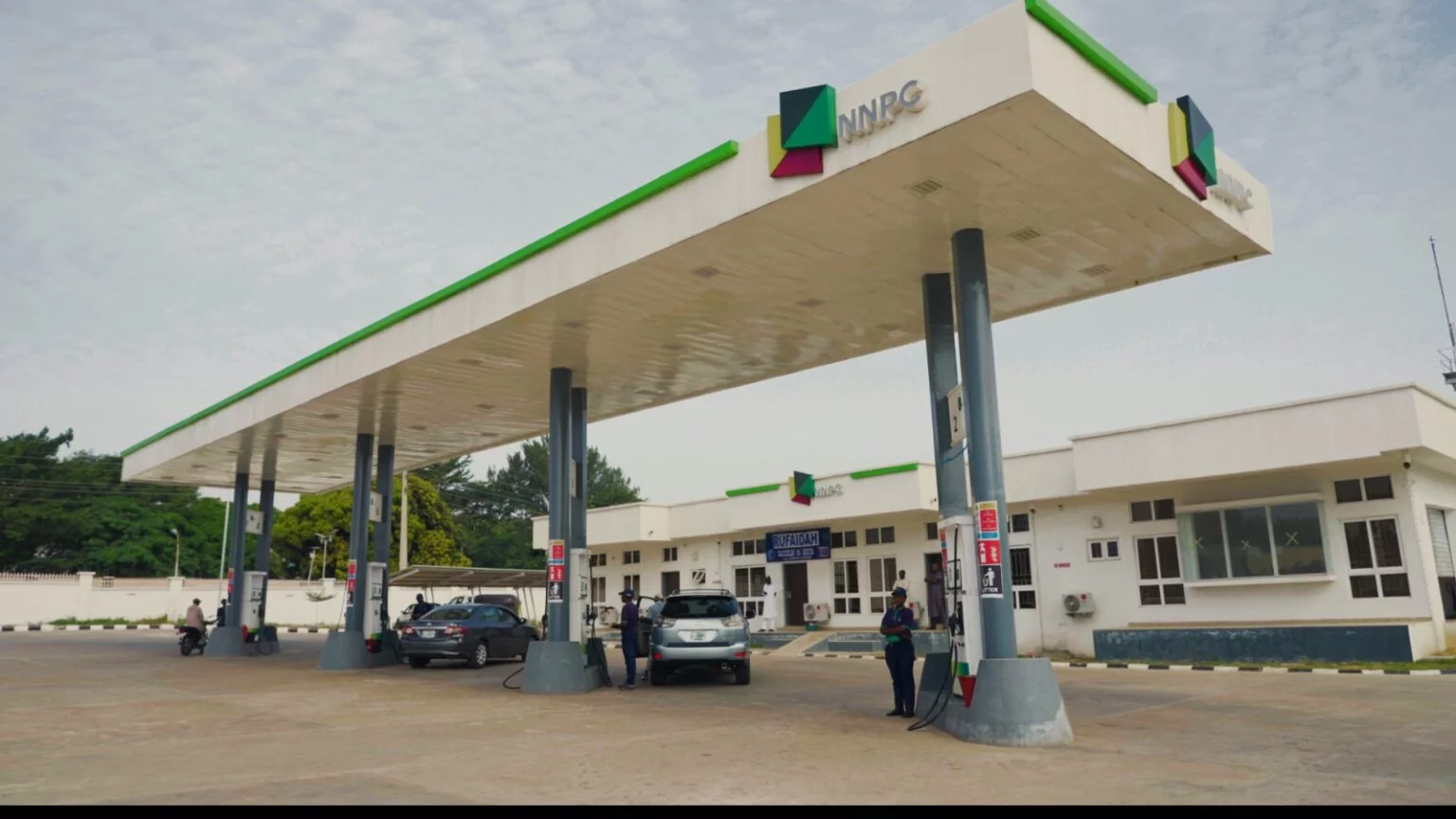
NNPCL’s New Culture of Transparency, Discipline Strengthens Financial Performance
By Enam Obiosio
The Nigerian National Petroleum Company Limited (NNPCL) is recording stronger financial and operational outcomes as its new culture of transparency, accountability, and capital discipline continues to take hold.
This shift is being reinforced by the company’s decision to publish audited financial statements, hold earnings calls, and open its books to independent analysts.
One of the analysts who reviewed the 2024 results, former Chief Financial Officer and Chairman of M.E Consulting Limited, Mr. Victor Eromosele, provided an independent breakdown that is shaping public understanding of the company’s progress.
In a media chat, Mr. Eromosele explained that he converted the N45.1 trillion revenue and N5.4 trillion profit into dollars to ensure comparability given the recent movement in the naira.
“The first thing I did was to convert it to the United States dollars because we all know what has happened to the naira recently,” he said.
“If you look at it in dollars you would find out that the top line instead of N4.5 trillion is actually 31.1 billion dollars. The bottom line instead of N5.4 trillion is actually 3.7 billion dollars.”
His analysis placed NNPCL beside global peers such as Chevron and ENI. While Chevron posted 193 billion dollars and ENI 198.7 billion dollars in revenue, NNPCL’s strength emerged in its efficiency.
“If you compared the bottom line with that of the top line which is the margin, you would find a situation where NNPCL for example is at 11.8 percent, while ENI is at six percent and Chevron is at nine percent,” he noted.
“Looking at the figures, it shows NNPCL did better.”
He also highlighted 56 percent asset growth and a 28 percent return on capital employed, up from 23 percent the previous year; metrics he described as healthy and consistent with investment grade performance.
These indicators reflect the broader reforms under the Petroleum Industry Act, including the shift from a government revenue collector to a commercially structured energy company that pays taxes, royalties, and dividends clearly and independently.
The company now publishes IFRS-compliant audited accounts, reinforcing visibility and external validation.
According to Mr. Eromosele, once the numbers are assessed on a stable global baseline, “one can say NNPCL actually did well.”
NNPCL continues to strengthen transparency, operational discipline, and global competitiveness in line with its long-term transformation agenda.
FEATURES
Victor Okoli: The Young Nigerian Tech Founder Building Digital Bridge Between Africa and America

Victor Chukwunonso Okoli, founder of Vnox Technology Inc. (USA) and Vnox Limited (Nigeria), is steadily emerging as one of the most promising new voices in global travel-tech. His mission is clear: bridge the technological gap between Africa and the United States, redefine global travel systems, and empower a new generation of skilled youths through innovation-driven opportunities.
In a statement issued in Onitsha, Anambra State, by Vnox Limited (Nigeria), the company emphasized Okoli’s growing influence as a Nigerian international graduate student contributing meaningfully to U.
S. innovation. His rising travel-technology platform, FlyVnox, currently valued at an estimated $1.7 million, is positioning itself as a competitive player in the global travel ecosystem.Okoli explained that Vnox Technology was founded to “train, empower more youths, create global employment opportunities, and drive business growth through our coming B2B portal inside the FlyVnox app.” The platform’s new B2B system aims to support travel agencies, entrepreneurs, and businesses across Africa and the diaspora—giving them access to modern tools, previously inaccessible technologies, and global opportunities.
Several young men and women are already employed under the expanding Vnox group, with more expected to join as the brand grows internationally.
Born and raised in Eastern Nigeria, Okoli’s early life exposed him to the realities and frustrations faced by international travelers and diaspora communities. After moving to the United States for graduate studies, he transformed those experiences into a bold technological vision—building systems that connect continents and create seamless mobility for users worldwide.
At the center of that vision is the FlyVnox app, a modern airline-ticketing platform built with global users in mind. Combining American engineering precision with African mobility realities, FlyVnox offers international flight search, multi-currency support, secure payments, transparent pricing, and a clean, intuitive interface.
Beyond FlyVnox, Okoli has built a growing tech ecosystem under Vnox Technology Inc., which oversees several innovative ventures, including: Vnox TravelTech Solutions LLC (FlyVnox App), VnoxPay (fintech), VnoxShop / Zyrlia (e-commerce)
VnoxID / Nexora (digital identity and smart business card solutions)
Vnox Limited (Nigeria) anchors African operations, media services, and talent development—ensuring the brand remains rooted in its home continent even as it grows globally.
Okoli’s work has broad significance for both Africa and the United States. He represents the powerful impact of immigrant entrepreneurship on global competitiveness—creating new jobs, driving innovation, strengthening U.S.–Africa commercial ties, and contributing to the development of practical, scalable technologies.
The statement concludes that Vnox Technology is a brand to watch. As FlyVnox gains international traction and the Vnox group expands its footprint, Victor Okoli stands as a symbol of a rising generation: African-born, globally minded, and building technologies that connect and serve the world.
FEATURES
Governor Sule: Driving Economic Reforms from Policy to People in Nasarawa State

From Leo Zwanke, Lafia
In Nigeria’s evolving governance, few leaders have gained as much recognition for reform-driven innovation at the subnational level as Governor Abdullahi Sule of Nasarawa State. From fiscal prudence to industrialisation, agricultural transformation to human capital development, the engineer-turned-technocrat has steadily positioned Nasarawa as a model for how subnational governments can translate macroeconomic reforms into tangible benefits for their citizens.
At the recent Nigeria Development Update (NDU), organised by the World Bank in Abuja with the theme “From Policy to People: Bringing the Reform Gains Home,” Governor Sule was a panellist alongside national and international development leaders.
He was introduced as a governor whose economic insight and governance style exemplify how reform implementation at the grassroots can sustain the federal government’s policy direction.“Governor Sule represents the bridge between Nigeria’s macroeconomic reforms and how these policies are domesticated at the state level,” said Shubham Chaudhuri, the World Bank Country Director for Nigeria. “He’s not only talking about reforms; he is implementing them in ways that citizens can feel.”
Before venturing into politics, Abdullahi Sule built a career in engineering, energy, and industry—serving as Managing Director of Dangote Sugar Refinery and leading other private sector initiatives. His private sector exposure, as many observers note, shaped his pragmatic approach to governance.
“The Governor came into office with a technocrat’s mind,” noted Dr. Ahmed Mohammed, an economist and lecturer at Nasarawa State University, Keffi. “He understands that policy documents mean little unless they are converted into livelihood gains.”
That philosophy—bridging policy with the people—is evident across his governance initiatives, aligning seamlessly with the World Bank’s recent development theme.
Agriculture remains Nasarawa’s economic backbone, engaging over 70 percent of its population. Governor Sule’s administration has revitalised the sector through targeted mechanisation, input distribution, and market linkage interventions.
Through partnerships with the African Development Bank (AfDB) and the World Bank’s Agro-Climatic Resilience in Semi-Arid Landscapes (ACReSAL) project, the state has distributed modern tractors, improved seedlings, and irrigation facilities to thousands of farmers.
In Yamaltu Deba, a community in Awe Local Government Area, farmer Mallam Abdullahi Umar explained how the tractorisation scheme has transformed their operations.
“Before, we used hoes and cutlasses. It took us two weeks to plough a hectare. Now, with tractors, we do that in one day. Our yields have doubled,” he said proudly.
Governor Sule himself often emphasises the need for “commercially viable farming” and “agriculture as a business, not a subsistence activity.” His administration has created a framework for farmer clusters, linking smallholder producers with large-scale processors, thereby addressing one of Nigeria’s major agricultural bottlenecks—post-harvest loss.
These interventions are not isolated. They feed into the national agenda of improving food security, generating rural employment, and reducing inflation. In Nasarawa, farmers are reporting higher incomes and expanded market access, a reflection of the governor’s commitment to inclusive growth.
Often called the “Home of Solid Minerals,” Nasarawa State is richly endowed with tin, lithium, barite, and other minerals. Yet, for decades, the sector remained largely informal, with little contribution to state revenue.
Governor Sule has changed that narrative through policy reforms that encourage private sector participation and responsible mining. Under his administration, Nasarawa has developed a solid minerals development policy, created a one-stop investment office, and attracted both domestic and foreign investors.
Earlier this year, the governor led an investment mission to India, where he met with industrial leaders and promoted opportunities in Nasarawa’s mining, energy, and agricultural value chains. The result was a flurry of interest from companies seeking to establish operations in the state.
“Governor Sule’s investment drives are opening Nasarawa to the world,” said Mr. Nabil Saleh, a consultant in mining development. “For the first time, there’s a clear structure and transparency around mining licences, community agreements, and environmental safeguards.”
In Karu and Keffi, local youths who previously relied on artisanal mining now participate in formalised mining cooperatives supported by state-led training programmes. This not only ensures environmental safety but also helps the state retain a greater share of mining revenue.
Additionally, Governor Sule’s administration has set up an Industrial Development Plan anchored on the establishment of industrial parks in Lafia, Doma, and Karu. The parks are designed to host agro-processing, mineral refining, and light manufacturing industries. This initiative ties directly into the World Bank’s message of translating macro-level reforms into job creation and improved livelihoods at the subnational level.
Economic reforms cannot thrive without functional infrastructure. In Nasarawa, infrastructure development has been a cornerstone of the Sule administration.
From the dualisation of major highways connecting the state to Abuja, to the ongoing construction of feeder roads linking rural communities with markets, the administration has prioritised roads as key drivers of commerce.
The Mararaba–Udege–Uke feeder road, completed in 2024, now connects thousands of farmers to urban markets, significantly reducing transport costs and spoilage.
“It used to take us two hours to reach Lafia with our goods; now it’s less than 40 minutes,” said Mrs. Asabe Luka, a tomato farmer from Obi LGA. “We no longer lose our produce on bad roads.”
Power and energy are also central to Nasarawa’s reform narrative. Through collaboration with the Nigeria Electrification Project (NEP) and independent power producers, the state is expanding rural electrification, powering small businesses and industries.
Governor Sule’s energy policy aims to make Nasarawa a net supplier of power to neighbouring states, leveraging its hydro and solar potential.
“Access to power is central to our industrial ambition,” the governor said at a recent state economic forum. “Without energy, reforms remain theoretical. That’s why we’re integrating renewable energy solutions into our development plan.”
For Governor Sule, economic growth is only sustainable when accompanied by human capital development. The state has, therefore, increased investment in education, healthcare, and social protection programmes.
In 2025, the governor flagged off the integrated Measles-Rubella and Polio Immunisation Campaign in Akwanga, with support from UNICEF and the World Health Organisation (WHO). This campaign, which is said to reaching over 1.37 million children, was part of the administration’s wider commitment to preventive healthcare.
“We are determined to eliminate vaccine-preventable diseases and ensure that every child in Nasarawa can live a healthy life,” Governor Sule declared during the flag-off.
The state has also revitalised its primary healthcare centres, constructed new hospitals, and initiated the Nasarawa Health Insurance Scheme (NHIS), which now covers over 120,000 residents.
In education, Nasarawa has built and renovated hundreds of classrooms, recruited teachers, and introduced digital learning tools in partnership with donor agencies.
Mrs. Rachael Musa, a teacher in Keana, described how digital education is changing learning outcomes:
“We now use tablets to teach basic science and mathematics. The children are more interested, and parents are beginning to value education even more.”
The Nasarawa State Scholarship Board has been revamped to ensure fair and transparent allocation of bursaries, especially for female students pursuing science and technology courses.
According to the chief press Secretary to the Governor, Ibrahim Addra who noted that the Nasarawa State Governor, His has been honoured with the prestigious Platinum Award and recognition as Education Ambassador in Lagos Nigeria.
He said the honour bestowed on Governor Sule is at the instance of the Independent Newspaper which referenced the Governor’s “investment, advocacy and promotion of child education in Nasarawa State which resonate across the country.”
In a letter notifying the Governor of the award, Independent Newspaper said, “If Sir Ahmadu Bello were to look back from his grave, he would no doubt be proud of Governor Abdullahi Sule for sustaining the legacy of free primary education.”
The award ceremony was held on Thursday, October 9, 2025, at the Eko Hotel and Suites, Victoria Island, Lagos.
Governor Sule has since expressed gratitude to the Daily Independent for recognising the efforts of his administration to give the education sector the deserved attention through huge budgetary provision, innovation, supervision, and uncommon commitment.
These social investments and Educational Reforms directly support the World Bank’s reform agenda, which emphasises human capital as the foundation of economic transformation.
Under Governor Sule, Nasarawa has emerged as one of the most fiscally disciplined states in Nigeria. The State Fiscal Transparency, Accountability, and Sustainability (SFTAS) initiative—a joint programme of the Federal Government and the World Bank—ranked Nasarawa among the top-performing states in financial reporting, budget transparency, and citizens’ engagement.
The administration has digitised the state’s revenue collection system, introduced e-procurement, and created a Public Procurement Bureau to monitor contract awards. These reforms have improved public trust and investor confidence.
“Governor Sule’s approach to governance is evidence-based,” noted Dr. Joy Adamu, a governance analyst. “His administration publishes budget details online and invites civil society to track spending. That’s rare in many states.”
The 2025 budget, valued at over ₦149 billion, focuses heavily on capital expenditure, targeting agriculture, infrastructure, and education. The governor has described it as a ‘budget of continuity and consolidation’, aimed at completing legacy projects and sustaining fiscal reforms.
The Nigeria Development Update’s message is the need to ensure that macroeconomic reforms such as subsidy removal, foreign exchange unification, and fiscal tightening translate into visible improvements in citizens’ welfare.
Governor Sule’s Nasarawa model aligns perfectly with this philosophy. His state’s economic agenda mirrors national priorities while remaining locally driven.
“Reforms must touch the lives of people directly,” the governor said during the World Bank panel. “That is why we design our programmes to impact farmers, traders, miners, and small businesses, not just government statistics.”
By investing in production, transparency, and human capital, the Sule administration demonstrates that subnational governments can serve as catalysts for national reform success.
In Nasarawa, the story of reform is not just told in government memos—it’s lived by ordinary people.
In Doma, cassava processor Mrs. Maimuna Adogi recounted how a state grant enabled her to expand her processing mill.
“Before the grant, I employed only two people. Now, we are ten. I can feed my family and even save for my children’s school,” she said.
In Keffi, youth entrepreneur Tanimu Musa described how the Nasarawa Enterprise Development Scheme (NEDS) helped him scale his small welding business.
“The state gave us training and small loans. Now I get contracts from local construction firms,” he explained.
These micro-level testimonies echo the theme of “From Policy to People,” proving that reforms are only successful when their impact is measurable in people’s lives.
Governor Abdullahi Sule’s reform trajectory provides a powerful case study in how subnational leaders can domesticate and sustain national reforms. His administration’s blend of technocratic precision, fiscal responsibility, and citizen-focused programmes stands out in Nigeria’s subnational governance landscape.
As Nigeria seeks to stabilise its economy and build inclusive growth, the Nasarawa model offers valuable lessons in investing in sectors that touch people directly, agriculture, education, and health, while pursuing transparency and accountability as the foundation for investor trust, and engaging communities in policy design and delivery.
From the fields of Doma to the classrooms of Keana, and the mining pits of Udege to the industrial estates in Lafia, the gains of reform are becoming visible.
In the words of the governor himself: “When people begin to feel government policies in their pockets and in their homes, that’s when reforms become meaningful. That’s what we are doing in Nasarawa.”








